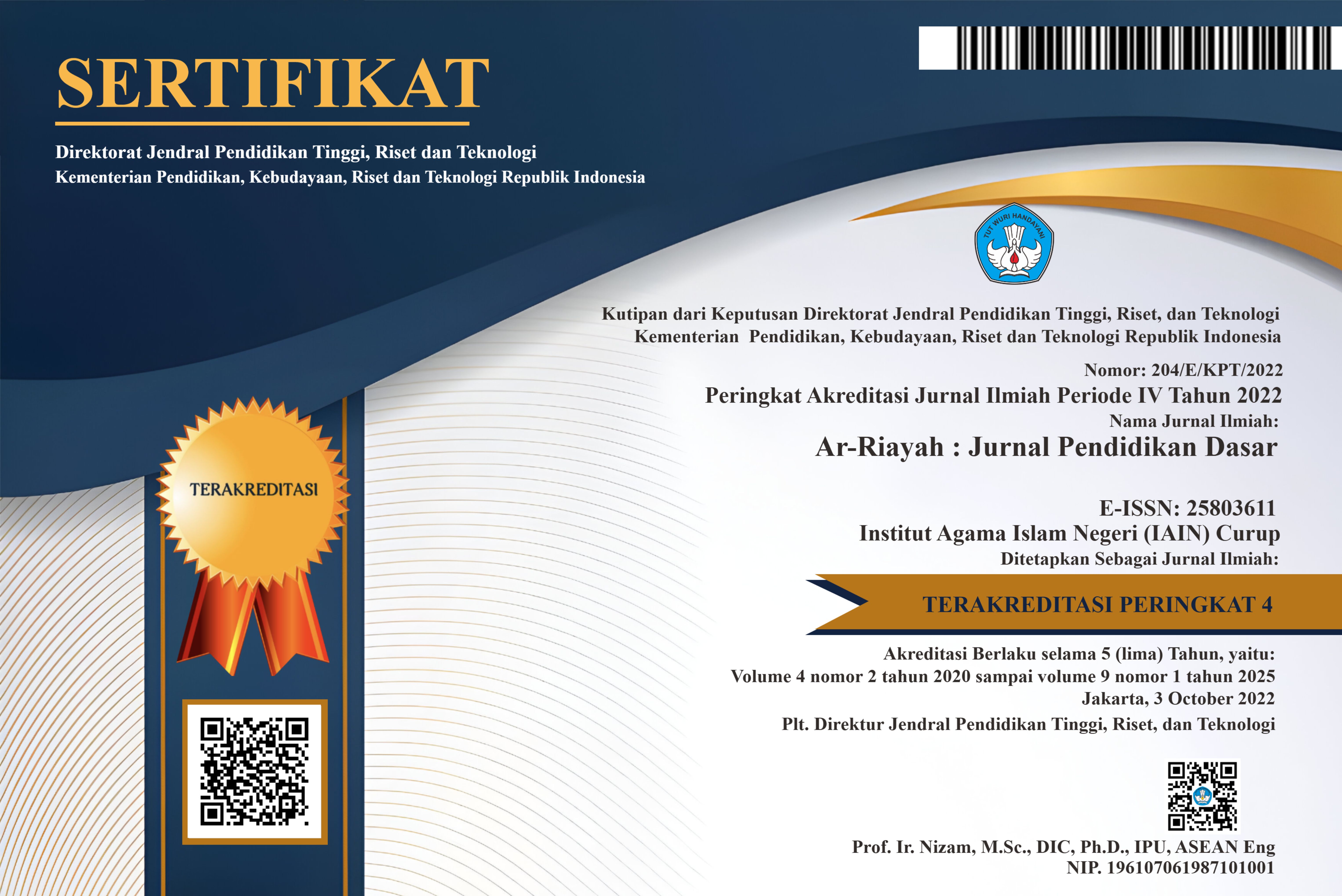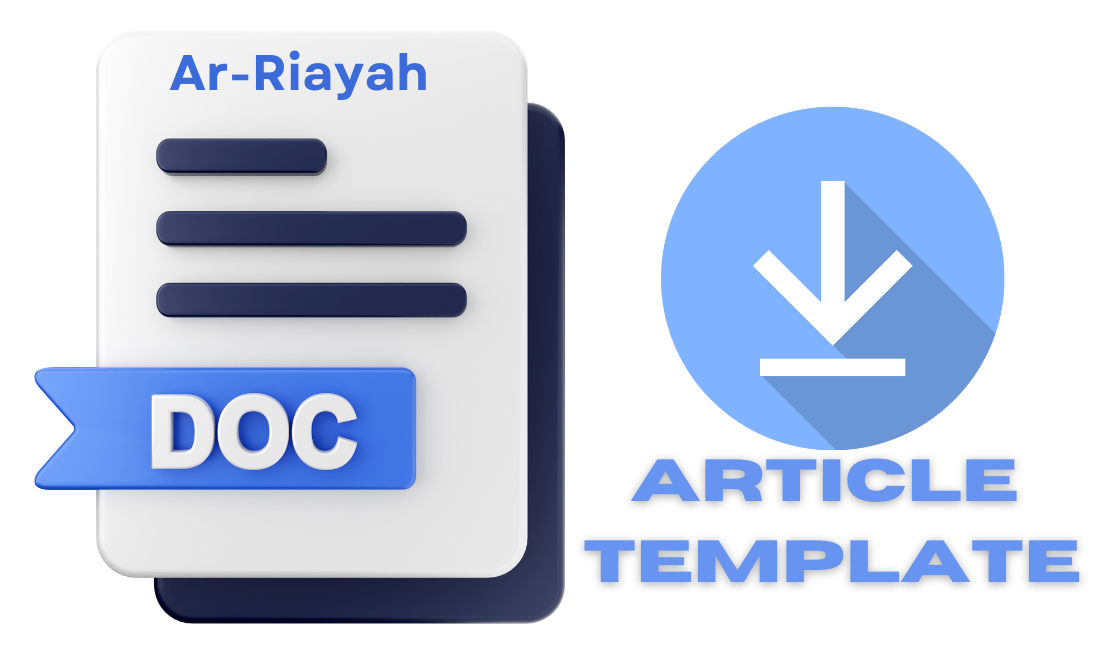Pengembangan Modul Praktikum Program Labschool dalam Meningkatkan Kompetensi Profesional Mahasiswa Pendidikan Guru Madrasah Ibtidaiyah
DOI:
https://doi.org/10.29240/jpd.v5i2.3157Keywords:
Practicum Module, Labschool Program, Student Professional CompetenceAbstract
Competition for the quality of graduate graduates is both a challenge and an opportunity for every study program, especially the Madrasah Ibtidaiyah Teacher Education study program (PGMI). Self-actualization of the development of job opportunities is important, especially in increasing student competence so that they can graduate and be accepted by stakeholders. This is a supplement to become a conductor in realizing multitalent and professional educators. Based on questionnaires, observations, interviews, and documentation, it was obtained data that the development of the labschool program practicum module in improving the professional competence of the PGMI study program students of the Islamic Religion Institute Ma'arif NU Metro Lampung got a good category. This can be seen from the acquisition of scores of 80% media experts and 78% material experts. This development is expected to be used as a guide for developing student professional competence from the implementation stage to the assessment stage. This program aims to deliver professional and multitalented teaching staff candidates. Thus PGMI graduates are ready to compete in the world of work and can be accepted by graduate users well
Downloads
References
E.Mulyasa, (2007). Standar Kompetensi dan Sertifikasi Guru,(Bandung: PT Remaja Rosdakary.
Fatmalia, E., & Nurhidayatullah. (2020). Jurnal Kependidikan : Pengembangan Modul Praktikum Laboratorium Sekolah Tinggi Teknik Lingkungan ( STTL ) Mataram Enida Fatmalia , Nurhidayatullah Program Studi D-3 Kesehatan Lingkungan , Sekolah Tinggi Teknik Lingkungan ( STTL ) Mataram , Indonesia Corre. 6(1).
https://www.jogloabang.com/pendidikan/pp-19-2017-perubahan-pp-74-2008-guru, kamis 05 November 2020
Sugiyono, 2010. Metode Penelitian Pendidikan Kuantitatif dan Kualitatif dan R & D Bandung: Alfabeta.
Suseno, N., & Riswanto, R. (2017). Sistem Pengelolaan Laboratorium Fisika Untuk Mewujudkan Pelaksanaan Praktikum Yang Efisien. Jurnal Pendidikan Fisika, 5(1), 76. https://doi.org/10.24127/jpf.v5i1.743
Syahrir, Susilawati, “Pengembangan Pembelajaran Matematika Siswa SMPâ€, Vol 1 No 2.
Syamsul. (2012). Perancangan Dan Pembuatan Modul Praktikum Berbasis Mikrokontroler Untuk Meningkatkan Fungsi Laboratorium Sekolah Menengah Tingkat Atas (Smta). Jurnal Litek: Jurnal Listrik Telekomunikasi Elektronika, 13(2), http://e-jurnal.pnl.ac.id/index.php/litek/article/view/415/383
Syamsul. (2012). Perancangan Dan Pembuatan Modul Praktikum Berbasis Mikrokontroler Untuk Meningkatkan Fungsi Laboratorium Sekolah Menengah Tingkat Atas (Smta). Jurnal Litek:Jurnal Listrik Telekomunikasi Elektronika, 13(2), http://e-jurnal.pnl.ac.id/index.php/litek/article/view/415/383.
Widyaningsih, S. W., & Yusuf, I. (2018). Analisis Soal Modul Laboratorium Fisika Sekolah I Menggunakan Racsh Model. Gravity : Jurnal Ilmiah Penelitian Dan Pembelajaran Fisika, 4(1), https://doi.org/10.30870/gravity.v4i1.3116
Downloads
Published
How to Cite
Issue
Section
Citation Check
License
Copyright (c) 2021 Masrurotul Mahmudah, AL Ikhwanah, Muh. Ngali Zainal Makmun

This work is licensed under a Creative Commons Attribution-NonCommercial-ShareAlike 4.0 International License.
Authors who publish with Ar-Riayah: Jurnal Pendidikan Dasar agree to the following terms:
Authors retain copyright and grant the journal right of first publication with the work simultaneously licensed under a Creative Commons Attribution-NonCommercial-ShareAlike 4.0 International License (CC BY-NC-SA 4.0) that allows others to share the work with an acknowledgment of the work's authorship and initial publication in this journal.
Authors are able to enter into separate, additional contractual arrangements for the non-exclusive distribution of the journal's published version of the work (e.g., post it to an institutional repository or publish it in a book), with an acknowledgment of its initial publication in this journal.
- Authors are permitted and encouraged to post their work online (e.g., in institutional repositories or on their website) prior to and during the submission process, as it can lead to productive exchanges, as well as earlier and greater citation of published work (See The Effect of Open Access).










